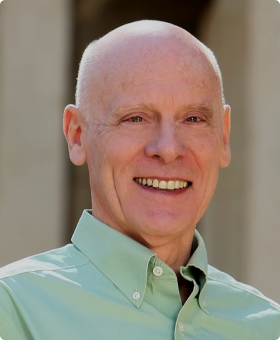Two months ago, Kathy and I watched the reality television series Alone. The show chronicles a competition among ten wilderness experts who are isolated from each other and all other humans as they attempt to survive in the Canadian Arctic for 100 days. Contestants begin with no food and only 10 basic survival items like a sleeping bag, tarp, axe, saw, flint, nylon line for making snares or a gill net, a bow, and a limited number of arrows. The 100 days extended from late September until the end of December when the contestants would be facing blizzards and temperatures below 40°.
The contestants faced the daunting challenge of securing enough food to stay alive, fending off large predators intent on stealing their food, and quickly building a shelter able to withstand high winds and bitter cold. However, as we watched the eleven episodes, it became apparent that the psychological difficulties were more challenging than the physical demands. Being isolated from direct contact with other humans took its toll. Several contestants tapped out early because they could no longer tolerate the isolation. Only one contestant made the full 100 days, a professional Alaskan wilderness guide and hunter who suffered some psychological trauma as a result.
Effects of isolation
Genesis 2 explains that God created the first man before creating the first woman. Adam enjoyed a garden paradise and animals intent on serving and pleasing him. Yet God said, It is not good for the man to be alone, and created Eve.
Now, a team of neuroscientists and biologists led by Julia George has shown that acute social isolation alters the neurogenic state of the brain.[1] Prior work focused on prolonged isolation over weeks. This new work asked a different question.
How the study was done
Could even brief isolation of 24 hours or less alter gene expression and DNA methylation in higher cognitive centers of the brain? For ethical reasons the team did not isolate humans. They selected zebra finches, a highly social songbird, as a proxy based on established comparative research.[2]
- Twenty four adult female zebra finches lived together in an aviary.
- Twelve birds were placed alone overnight in a sound isolation chamber, then sampled for forebrain neurogenomic state.
- Twelve control birds were sampled immediately without isolation.
What changed in the brain
Even a single overnight isolation produced rapid changes in brain gene activity. Forty genes showed evidence of differential methylation.[3] Hundreds of genes in higher forebrain centers tied to social communication shifted, with suppression in sets linked to neurotrophic signaling and axon guidance.[4]
The most affected gene was EGR1, a common marker for neural activity related to learning, memory, and salience. The authors argue the effect is likely general across species and settings, suggesting a path to lasting structural and functional changes in human brains from short periods of acute isolation.
In a follow up, when two zebra finches spent the night together in the isolation chamber, the negative changes disappeared. The absence of social engagement, not the novel environment, drove the effect.
Designed for community
This research echoes the biblical claim that it is not good for people to be alone. Social engagement supports optimal physical and mental health. Hebrews 10 verse 25 urges believers to keep meeting together. Conversation matters through spoken words, texts, online messages, and being physically present.
Personally, my travels and research sometimes involve periods of isolation. I set a daily practice to connect with at least one other person. Rather than survive alone, we are made to thrive in community.
Live this out
- Schedule a brief touch point with a friend or mentor each day.
- Join a small group in your local church and commit to regular attendance.
- Serve someone quietly this week. Connection grows as we give.
- Explore related reading in our Articles and Online Courses.
Endnotes
- Julia M. George et al., Acute Social Isolation Alters Neurogenomic State in Songbird Forebrain, Proceedings of the National Academy of Sciences USA 117, no. 38 (September 22, 2020): 23311–16, doi:10.1073/pnas.1820841116. ↑
- John T. Cacioppo et al., Loneliness across Phylogeny and a Call for Comparative Studies and Animal Models, Perspectives on Psychological Science 10, no. 2 (March 2015): 202–12, doi:10.1177/1745691614564876; Angela J. Grippo et al., Social Isolation Induces Behavioral and Neuroendocrine Disturbances Relevant to Depression in Female and Male Prairie Voles, Psychoneuroendocrinology 32, nos. 8–10 (September–November 2007): 966–80, link; Moriel Zelikowsky et al., The Neuropeptide Tac2 Controls a Distributed Brain State Induced by Chronic Social Isolation Stress, Cell 173, no. 5 (May 17, 2018): 1265–79, link. ↑
- George et al., Acute Social Isolation, 23313. ↑
- George et al., Acute Social Isolation, 23313. ↑
Go Deeper
- Relying on The Constant Companionship of The Holy Spirit Video Series
- Inspiring Faith in Your Children and Grandchildren Package Offer
- The Evidence for the Historical Jesus Updated Edition
Related reading: Articles | The basin and the towel






Leave a comment